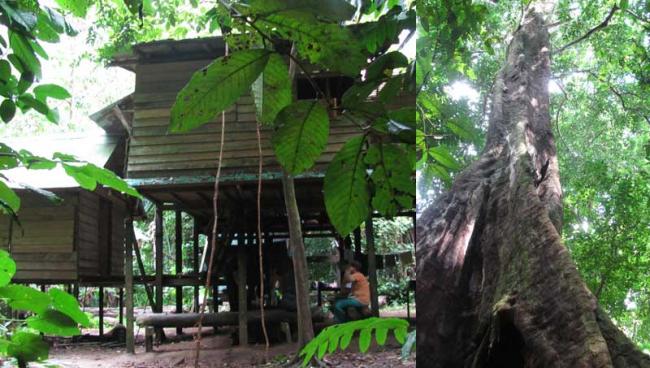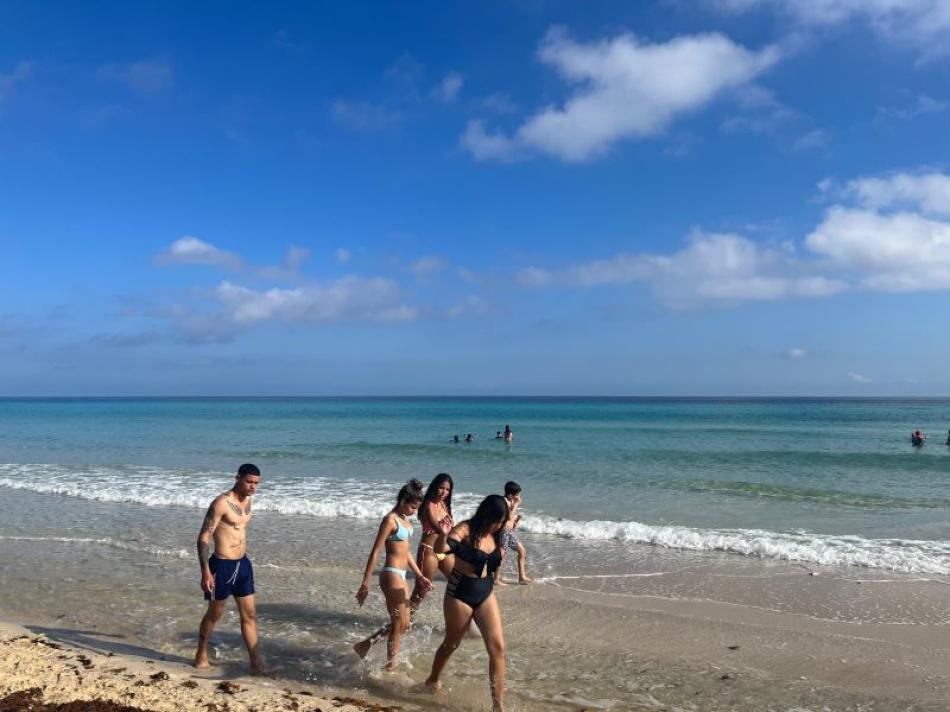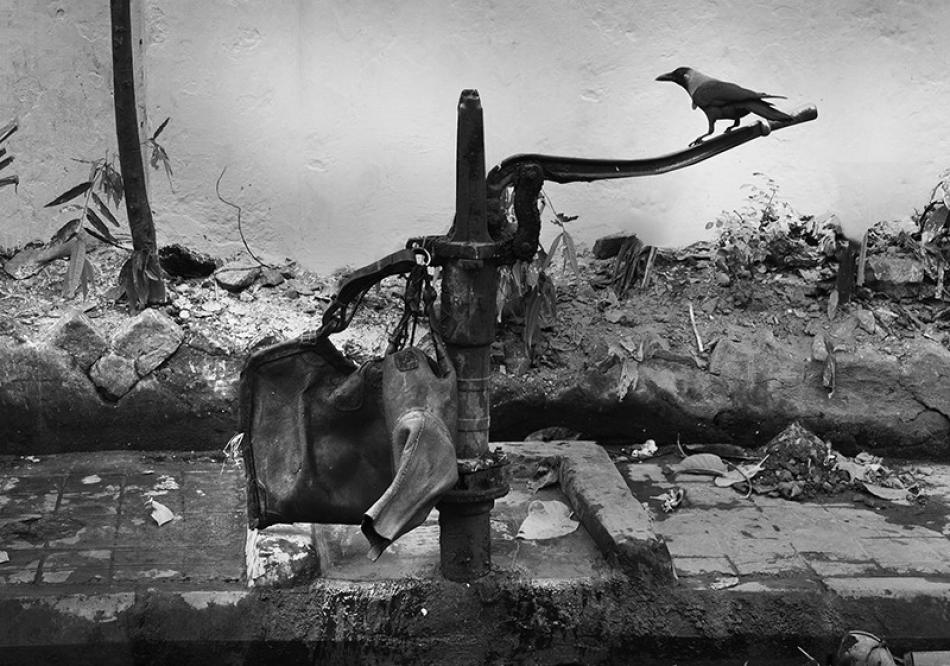Trans World Features 01 Jul 2013, 07:37 am

When my friend, Sudha, pointed out the Indonesian side of Borneo and said we were going to spend four days in the wilderness of this forest, I was quite enthusiastic, little knowing that it would be this enthusiasm that would be in dire need while climbing to the Lubok Baji and Kubang hill, the two hotspots we would visit in the park. Never before had I trekked in a rainforest. The locals said they had not seen any Indian traveller either.
So we five adventurers ready to take on any hardship set out from Delhi to Jakarta. From Jakarta we proceeded to Pontianak, capital of West Kalimanthan, also famously known as the ‘Equator Town’ as it sits right on the Equator.
Next morning at the embarkation wharf we got quite a shock. The ocean going boat, Mega, which was to carry us to Ketapang was a two tier boat where the cabins were completely sealed. The interior smelt of dirty upholstery and stale food. People were cramped in with their luggage. We were looking for seats whe we were provided with plastic stools! We marched to the captain’s cabin. Being foreigners, we were allowed in. We made ourselves comfortable right outside the cabin under the clear blue sky overlooking the sparkling multi hued South China Sea. The equatorial sun beat down on us and I was nicely baked by the time I reached Ketapang. Glen, our coordinator of the tour had a SUV ready and after getting our park permits for the night stay in the jungle, we sped off towards Sukadana, our last post to civilization.
After two hours of bone jarring drive over a pitted road with no lights but the vehicle’s, our destination for the night, the Mahkota hotel at Sukadana came into view. The hotel was located right next to the sea.
We hit the road early the next morning. Darr, our local guide, had joined us by hten. At the local market we selected provisions for our meals in the forest. Well, a vegetarian group makes this process a wee bit difficult. Finally, we drove to the end of the Balinese transmigration village and were joined by our porter, Harry, a young lad who simply loaded the provisions in a backpack and sprinted off.
The trek began and Darr explained very matter-of-factly that the climb was going to get a little tough. The fleet footed locals take about two to three hours to cover the trek. Well, we, the not so fleet footed, took our time as we pushed ourselves one step at a time and stopped too frequently for both Darr and Glen’s liking.
We were now in the midst of a rain forest unspoilt by interference of man. What hit me was the noise. It was all pervading – the sound of insects, at various pitches, the call of birds and animals. The gurgling of streams and onrush of waterfalls harmonized with it all. Pink ribbons tied around the trunk of trees indicated we were on the right track. At several places, Darr would use his machete to cut a path for us. We would come across streams which had to be crossed by precariously balancing ourselves in moss covered slippery stones. You slipped, fell, hurt your back, pulled yourself up and moved on.
At times we caught glimpses of monkeys playing hide and seek, a sudden whirring noise made us look up to see a hornbill fly past, a flash of dazzling gold comes from a butterfly, a dangerous looking black and red millipede like insect crawls through our feet and huge red ants march away ready to attack anyone who disturbs their formation. Mushrooms in vivid colours decorated tree trunks and branches. Sometimes, the strong odour of the ripening Durian fruit (looks like a more rounded jackfruit) pervaded the air. The Orangutans love this fruit and can be spotted around these trees. Their nests shaped like round hammocks hang from tall trees.
The humidity inside the forest seemed to envelop us like a cloak. The thick canopy of trees rose so high that we had to crane our necks backwards to take it all in. Rays of light pierced through tiny openings and hit the rising vapour giving a suffused glow to the forest. After five hours of climbing, we decided we were doomed to stay in this state of utter exhaustion. So when Darr announced that we were about to reach our destination, we simply shrugged it off. Sure enough, we took a turn and caught sight of a stream with three blue tents set up next to it. We hurried across the stream. But our goal eluded us as we were told that the tents were not ours. They seemed occupied by young boys busy cleaning utensils and filling water from the stream.
A few more steps and we crossed a tiny wooden plank over another stream and there right in front of us was a two storey magnificent log house on stilts. We threw ourselves on the rough log benches set up under it. The house had square wooden rooms with four huge flaps for windows and a corrugated tin sheet for a roof. An area on the ground floor acted as a makeshift kitchen. Water came from the stream; utensils were kept in a room all year round for travelers. A tiny outhouse completed the picture.
The remaining daylight was utilized in trekking around the forest some more, when it started to rain torrentially and in no time we were soaked to the skin. Back at the log house we had an early dinner by candlelight and retired for the night listening to the rain clattering on the roof. Needless to mention, the next day’s climb down was not a pleasant affair since the route was covered in slush and it was still raining. However, all of us completed the trek without any bones broken, tired but exhilarated.
- Japanese Ambassador’s Bengaluru Visit Puts India's Best Pizza in Spotlight
- Vintage automobiles steal the show at The Lake Club, Kolkata
- Heritage walk traces Medical College Kolkata’s 192-year journey of medicine, reform and nation-building
- Zakaria Street Heritage Food Walk in Kolkata - Register Now to Taste a Living Culinary Legacy
- Step Into the World of Bridgerton at These Real-Life Locations
- This New Place at Zurich’s Bürkliplatz is Quietly Becoming Everyone’s Favourite Stop
- From ancient sea routes to your plate: Taj Bengal’s Jatraa is Kolkata’s must-taste food voyage
- This City is Quietly Redefining What a Holiday Experience Looks Like
- Saigon Sisters in Chicago — A Dumplings & Bao Love Story
- Beyond Old and New: Bickram Ghosh and the Art of Fusion at Serendipity
Gurgaon : Air India, India’s leading global airline, has unveiled a completely refreshed beverage collection, one that brings together some of the world’s most celebrated wines and spirits at 35,000 feet on international routes.
Indian airline major Air India today announced a significant enhancement to its popular Mumbai-Frankfurt route, with the deployment of its newly delivered, first line-fit (or made-for-Air India)
Saudia, the national flag carrier of Saudi Arabia, and Air India, India’s leading global airline, have signed a codeshare agreement that will take effect in February.





